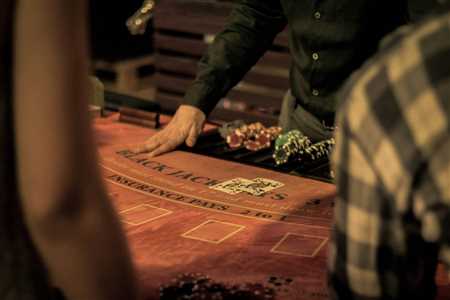

Throughout history, various forms of entertainment have emerged, capturing the imagination of countless individuals across different cultures. This realm of leisure has consistently adapted to societal changes, reflecting shifts in preferences and technological advancements. Understanding this rich tapestry reveals not only the nature of the activities themselves but also their significance in shaping social interactions and community dynamics.
Traditional activities have laid the groundwork for modern alternatives, leading to inventive iterations that keep audiences engaged. Players once gathered around physical tables, immersing themselves in strategic competitions, while innovations ushered in a digital realm where thrilling excitement is now accessible from the comfort of home. This transformation invites reflection on how these pursuits have influenced personal experiences and collective memories.
As new variations surface, enthusiasts continue to seek out fresh experiences, proving that the allure of chance and skill remains a fundamental aspect of human entertainment. Analyzing how past pastimes transitioned to contemporary engagements unveils insights into societal values, technological influences, and the ever-changing landscape of recreation.
This segment delves into the rich chronology of gambling pastimes, highlighting how these engaging activities have transformed over centuries. Each phase reflects societal norms, technological advances, and shifts in cultural attitudes towards risk and fortune. Let us embark on a journey through time to understand how these thrilling pastimes came to be cherished by many.
Ancient Origins:
Gambling has roots reaching back to ancient civilizations. Evidence suggests that various forms of energetic pursuits existed in:
Mesopotamia
China
Egypt
Rome
Middle Ages:
During this period, dice games became widely popular across Europe. Notably:
Games involving chance were often played in taverns.
Basic card games began to surface, paving the way for more structured variants.
Renaissance Influence:
The Renaissance brought significant innovations in card design and game structure. Influential developments included:
Standardization of playing cards
The emergence of popular games like Baccarat
19th Century Advancements:
The growth of gaming establishments marked this era. Emergence of iconic pursuits such as:
Roulette
Blackjack
These pastimes gained a following, drawing attention from enthusiasts worldwide.
Modern Era:
With technological progress and digital transformation, gambling has taken new forms. Key developments include:
Transition to online platforms
Introduction of interactive slots
From humble beginnings to a global industry, this exciting journey showcases the enduring allure of these pursuits, reflecting human craving for excitement, challenge, and rewards.
In recent years, there has been a notable surge in interest surrounding classic tabletop activities. These engaging pastimes have captured the attention of enthusiasts worldwide, leading to a renaissance of sorts. Players are drawn to the social aspect, strategic depth, and timeless appeal that these games provide.
Rich History: Each game carries with it a story that spans generations.
Social Interaction: Players often gather to enjoy these activities, fostering connections and camaraderie.
Skill Development: Many tabletop activities require strategic thinking and decision-making abilities.
This revival can be attributed to several factors that have contributed to their resurgence:
Accessibility: With an increase in events and gatherings dedicated to these pastimes, more individuals can experience them firsthand.
Adaptation: Traditional activities have adapted to modern preferences, with innovative rule variations and formats.
Community Engagement: Online forums and social media platforms have created vibrant communities centered around these classic pastimes.
Ultimately, this renewed fascination underscores not only their timelessness but also their ability to evolve with changing preferences while retaining core elements that make them so enjoyable.
Rooted in history, this card pastime has captivated players for centuries. Its journey reflects cultural exchanges and changing preferences, leading to its current form that millions enjoy today. Understanding its beginnings offers insights into how traditions morph over time, influencing gameplay and rules across various platforms.
The earliest traces can be linked to 17th-century France, where a game called “Vingt-et-Un” was played. This name translates to “ Twenty-One,” which denotes the objective of reaching that number without exceeding it. Players soon embraced this variant, laying groundwork for modern adaptations. It featured similar mechanics, highlighting the balance between skill and chance.
As it migrated to other regions, numerous adaptations arose. In Spain, “Ventidós” gained popularity, further diversifying gameplay and strategies. These iterations contributed to shaping essential elements that players recognize today. Innovative tweaks emerged, capturing public interest and assuring continued engagement.
In the 20th century, this classic pastime reached new heights in American saloons, eventually evolving into the version we recognize. The allure of challenging the dealer quickly gained traction, setting the stage for its ubiquitous presence in various entertainment venues. The advent of legal gambling in the U.S. further propelled its prominence.
With advancements in technology and the rise of online platforms, this beloved game transitioned seamlessly into digital realms, attracting a fresh audience. Contemporary iterations preserve fundamental principles while introducing novel features, ensuring its enduring appeal dear to both new and veteran enthusiasts.
Roulette and poker represent two iconic pastimes that have captivated enthusiasts around the globe. Their allure lies in the blend of chance, strategy, and social interaction, creating an engaging atmosphere that draws both novices and seasoned players. Each offers a unique experience, fostering excitement and thrill while allowing individuals to test their skills and luck.
Roulette, with its mesmerizing spinning wheel and vibrant betting options, has enchanted players since its inception. Its straightforward rules combined with element of suspense make it accessible to many. This game’s visual appeal and quick pacing contribute significantly to its widespread appeal, attracting crowds in both traditional establishments and virtual spaces.
On the other hand, poker stands out for its strategic depth and competitive nature. Players not only rely on chance but also hone their skills in reading opponents and calculating probabilities. Its various formats, such as Texas Hold’em and Omaha, provide diverse playing experiences, further enhancing its desirability. From casual home games to high-stakes tournaments, poker offers thrilling moments and memorable interactions among participants.
As time passes, both roulette and poker continue to thrive, adapting to changing preferences and advancing technologies. The rise of digital platforms has allowed enthusiasts to enjoy these classics from anywhere, broadening their reach and ensuring their relevance in today’s entertainment landscape. Whether in a luxurious venue or the comfort of home, the excitement of both games remains unparalleled.
With the passage of time, various forms of entertainment have undergone significant transformations, leading to a distinct preference among participants. One such notable transition involves the rise of a specific type of gaming device that has captured the attention of many individuals seeking both excitement and simplicity in their leisure activities.
Slot machines have increasingly become a favored choice for those enjoying chance-based activities. Their straightforward mechanics, combined with vibrant visuals and engaging themes, offer users an immediate sense of gratification. Unlike traditional table activities requiring strategy and skill, these machines provide a more laid-back experience, appealing to a broader audience.
Furthermore, advancements in technology have facilitated the accessibility of these devices, making them available not only in physical venues but also on numerous digital platforms. This expansion has allowed enthusiasts to indulge in their favorite pastime from the comfort of their own homes, greatly contributing to the surge in their popularity.
As preferences continue to shift, the allure of these machines persists, driven by constant innovation and a commitment to enhancing user experience. Ultimately, this trend reflects a broader change within the realm of recreational activities, where convenience and instant gratification often reign supreme.
The concept behind a specific type of gaming device transformed entertainment in establishments worldwide. Originating in the late 19th century, this invention captured imaginations with its enticing allure and simple mechanics. Through a combination of chance and excitement, it became a staple in various social settings, fostering a unique atmosphere for players seeking fortune and thrill.
In 1891, two innovators from Brooklyn, New York, developed a pioneering model known as the «Liberty Bell.» This creation featured three spinning reels and five symbols, including diamonds, hearts, spades, and a bell. Players would pull a lever to set the reels in motion, adding an element of anticipation as they awaited matching symbols. This innovative design laid the groundwork for future developments in the gaming industry.
Over the years, many improvements have emerged, leading to a multitude of variations that cater to diverse tastes. As technology advanced, mechanical machines evolved into electronic versions, making gameplay even more engaging. The intuitive nature of these devices contributed significantly to their widespread appeal, transforming them into ubiquitous installations in entertainment venues.
Ultimately, the slot machine’s invention marked a turning point in recreational gambling, creating an enduring legacy that continues to resonate today. Whether in physical locations or through digital platforms, its impact remains significant, shaping how individuals seek fortune and enjoyment across generations.
The journey of traditional slot machines has been marked by significant transformations that reflect changes in technology, culture, and player preferences. Initially, these mechanical devices captured the public’s attention with their simple mechanics and bright visuals, quickly becoming a staple in entertainment venues. Over time, innovations in design and functionality infused these machines with excitement, creating a diverse array of options for players seeking both thrill and prize potential.
The original machines, often referred to as one-armed bandits, were purely mechanical and relied on a system of gears and levers. Players would pull a lever to set the reels in motion, aiming for matching symbols to achieve winning combinations. As interest grew, slight variations began to emerge, introducing additional reels and paylines, thus enhancing the overall gaming experience.
With the advancement of technology, these physical slot machines transitioned into electronic systems. Electronic slots offered improved features like sound effects, animated graphics, and a wider range of betting options, which captivated a broader audience. The introduction of video slots revolutionized the industry, allowing game designers to implement themes based on pop culture, movies, and history, creating a more immersive environment for players.
As time progressed, online gaming began to influence the physical realm. Land-based establishments started incorporating advanced technology that mirrored successful online features, enhancing player engagement. Touchscreen interfaces, progressive jackpots, and multi-game options became standard, making physical machines more appealing to a modern audience.
Today, traditional slot machines continue to evolve, seamlessly blending nostalgia with cutting-edge technology. Players now encounter a variety of themes, interactive bonus rounds, and social features that reflect modern gaming trends, ensuring that the charm of physical slots remains vibrant in an ever-changing entertainment landscape.
In recent years, advancements in technology have significantly transformed the landscape of entertainment, particularly in the realm of gambling. Digital innovation has reshaped how enthusiasts engage with their favorite pastimes, creating new avenues for interaction and enjoyment. The rise of virtual platforms has enabled unprecedented access and convenience, catering to a diverse audience across various demographics.
Online interfaces and mobile applications have redefined traditional experiences, facilitating seamless gameplay and real-time interaction among players. This shift has led to an increase in user engagement, as individuals can now participate in gaming activities from the comfort of their homes or on the go. Furthermore, sophisticated algorithms and data analytics have enhanced the functionality and appeal of these platforms, allowing developers to tailor experiences to specific user preferences.
Emerging technologies, such as virtual reality and augmented reality, are poised to further revolutionize how individuals perceive and engage with amusements. These innovations promise to create immersive environments that mimic physical establishments, providing a richer sensory experience. As a result, the relationship between technology and leisure activities continues to evolve, presenting exciting opportunities for both players and creators alike.